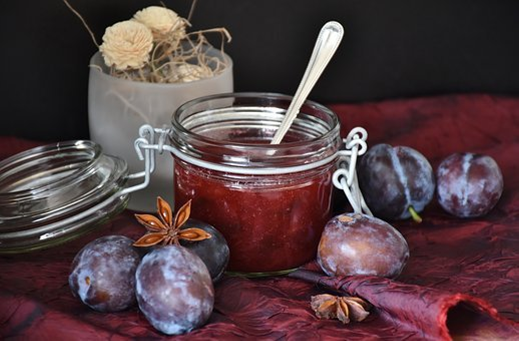By Scrivener
During the uncertainty caused by Covid-19 many of us have spent much time (and money) trying to keep sane by “doing” the garden or window box. Personally I have completed many of the small tasks that had been put “on the back burner”. But as autumn approaches the remaining jobs are much bigger and require much more effort, and as I have jams and pickles to make for CHRISTMAS (it’s not far away) gardening has to take a bit of a back seat to processing the produce.

During the Lockdown we have all had to become much more self reliant and one joy I have rediscovered is the reading of poetry and because of all the gardening one of the poems I revisited is “The Glory of the Garden” which, under the omnipresent threat of corporal punishment, I was forced to learn in Primary School. Being forced to do something as a child is often the route to utter rejection of the “stuff” being shoved down one’s throat as soon as possible after the medicine has been swallowed (or regurgitated by recitation in this case). And, so it was for years; however, the 17th & 18th lines of the poem remained always as an earworm.
Although Kipling may be regarded as an representative of Colonialism and The Raj (and is definitely a product of his time, – Rule Britannia, Land of Hope & Glory, Jerusalem and all that), he is writing about the whole country and the status quo: briefly, his world view at the time could be stated as “If every country in the world was part of the British Empire all would be well with the world.” The poem was published in 1911 just before Kipling’s world was turned upside down by WW1 (in 1915 Kipling’s only son, John, was to be posted “missing in action” at the Battle of Loos and it took until 1992 for John’s grave to be identified).
However there is always a subversive undercurrent in Kipling. Although he evokes “statues on the terraces and peacocks strutting” he goes on to write of “the dung pits and the tanks” showing the more unseemly side of “Enterprise Garden” and reveals that the garden relies on “broken dinner knives” and “men and ‘prentice boys” doing hard graft to keep the garden functioning properly.
During the Covid-19 epidemic much praise (quite rightly) has been lavished on Doctors and Nurses who are serving at the chalk face, however, their efforts would be to no avail without the workers (the laundry workers, the cooks, the electricians, the cleaners and others) based down in the bowels of the hospital supplying the wherewithal to enable the chalk-face staff to do the job of healing the sick. Please remember them too when thinking about our NHS.
Scrivener
